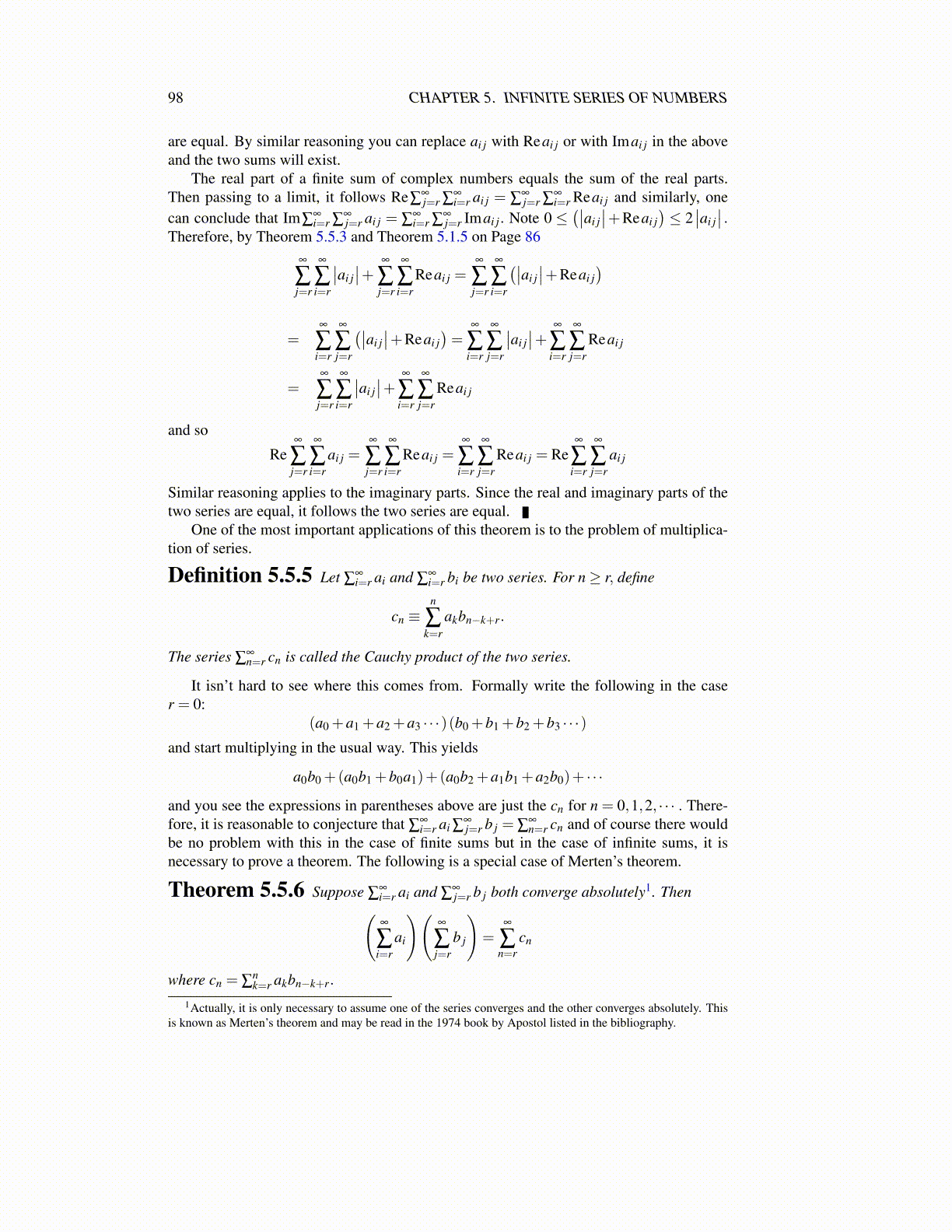
98 CHAPTER 5. INFINITE SERIES OF NUMBERS
12. You can define infinite series of complex numbers in exactly the same way as infiniteseries of real numbers. That is w = ∑
∞k=1 zk means: For every ε > 0 there exists N
such that if n ≥ N, then |w−∑nk=1 zk| < ε. Here the absolute value is the one which
applies to complex numbers. That is, |a+ ib| =√
a2 +b2. Show that if {an} is adecreasing sequence of nonnegative numbers with the property that limn→∞ an = 0and if ω is any complex number which is not equal to 1 but which satisfies |ω|= 1,then ∑
∞n=1 ωnan must converge. Note a sequence of complex numbers, {an + ibn}
converges to a+ ib if and only if an → a and bn → b. See Problem 6 on Page 64.There are quite a few things in this problem you should think about.
13. Suppose limk→∞ sk = s. Show it follows limn→∞1n ∑
nk=1 sk = s.
14. Using Problem 13 show that if ∑∞j=1
a jj converges, then it follows
limn→∞1n ∑
nj=1 a j = 0.
15. Show that if {pi}∞
i=1 are the prime numbers, then ∑∞i=1
1pi= ∞. That is, there are
enough primes that the sum of their reciprocals diverges. Hint: Let π (n) denote thenumber of primes less than equal to n,
{p1, ..., pπ(n)
}. Then explain why
n
∑k=1
1k≤
(n
∑k=1
1pk
1
)· · ·
(n
∑k=1
1pk
π(n)
)≤
π(n)
∏k=1
11− 1
pk
≤π(n)
∏k=1
e2/pk = e2∑π(n)k=1
1pk
and consequently why limn→∞ π (n) = ∞ and ∑∞i=1
1pi= ∞.
16. Verify the allegation about the Euclidean norm |x| ≡(
∑pk=1 |xk|2
)1/2that Fp with
the Euclidean norm yields the same Cauchy sequences, compact sets, and open andclosed sets as Fp with the norm ∥·∥.
17. Suppose S is an uncountable set and suppose f (s) is a positive number for each s∈ S.Also let Ŝ denote a finite subset of S. Show that
sup
{∑s∈Ŝ
f (s) : Ŝ⊆ S
}= ∞